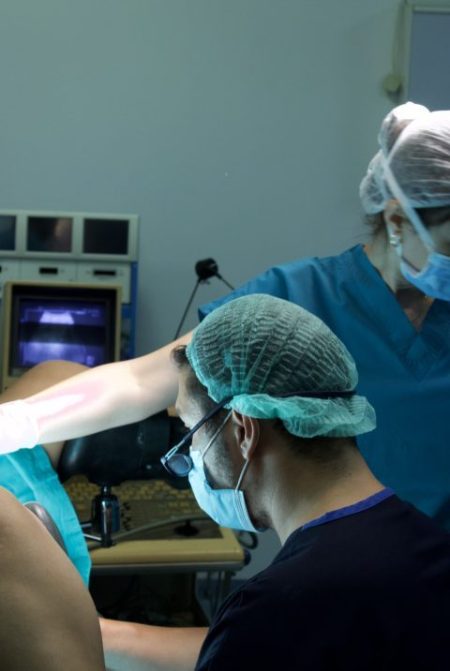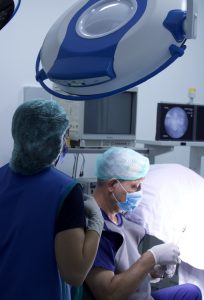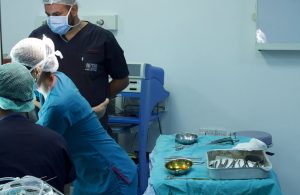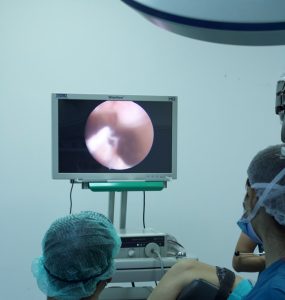A Guide to a Life-Changing Gift
For couples and individuals struggling with infertility, the egg donation procedure can be a life-changing opportunity to fulfill their dream of parenthood. While the concept of egg donation may seem complex, understanding the procedure can help alleviate any concerns and make the process more approachable. In this blog post, we’ll simplify the egg donation procedure, step by step.
Step 1: Initial Consultation
The egg donation journey begins with an initial consultation with a fertility specialist or a dedicated egg donation coordinator. During this consultation, the intended parents or recipient will discuss their medical history, preferences, and expectations. They will receive guidance on the entire process, including legal and ethical considerations, financial aspects, and any necessary psychological evaluations.
Step 2: Donor Selection
Once the recipient is ready to proceed, the next step involves selecting an egg donor. This can be done through an egg donor agency or a fertility clinic’s donor database. Donors are carefully screened for their physical health, reproductive history, and psychological well-being. Intended parents often have the option to choose a donor based on specific characteristics such as physical appearance, education, or personal interests.
Step 3: Synchronization of Cycles
To maximize the chances of success, the donor’s menstrual cycle and the recipient’s cycle need to be synchronized. This is achieved through medications that control and coordinate their reproductive cycles. Medications may include hormonal injections or oral medications that regulate the timing of ovulation and prepare the recipient’s uterus for embryo implantation.
Step 4: Egg Retrieval
When the donor’s eggs are ready for retrieval, a minimally invasive procedure called transvaginal ultrasound-guided follicle aspiration is performed. The donor undergoes a short outpatient procedure under sedation. Using an ultrasound probe, the fertility specialist retrieves the mature eggs from the donor’s ovaries using a thin needle. This process typically takes around 20-30 minutes.
Step 5: Fertilization and Embryo Transfer
After the eggs are retrieved, they are immediately fertilized with the recipient’s partner’s sperm or donor sperm through a process called in vitro fertilization (IVF). The fertilized eggs, now embryos, are closely monitored in a laboratory setting for a few days. The selected high-quality embryos are then transferred into the recipient’s uterus through a simple and painless procedure. This process is often guided by ultrasound imaging to ensure proper placement.
Step 6: Pregnancy Test and Follow-Up
Approximately two weeks after the embryo transfer, a pregnancy test is conducted to determine whether the procedure was successful. If the test indicates a positive result, the recipient will continue to receive ongoing medical care, including regular check-ups and monitoring during the early stages of pregnancy. The fertility clinic or specialist will provide guidance and support throughout the pregnancy journey.
Confidentiality
It’s important to note that the egg donation procedure involves strict legal and ethical guidelines to protect all parties involved. Confidentiality is maintained, and donors and recipients are often kept anonymous, although some arrangements may allow for varying degrees of communication and openness, depending on the parties’ preferences.
In conclusion, the egg donation procedure, though intricate, offers hope and the possibility of parenthood for individuals and couples facing infertility. With careful donor selection, synchronization of cycles, egg retrieval, fertilization, and embryo transfer, the process has helped countless families welcome a new chapter in their lives. The support and guidance provided by fertility specialists and clinics throughout the procedure are invaluable, ensuring a safe and supportive environment for all involved.
Please check out our previous post about advancements in IVF over the last decade.
Also, you can read more about egg donation procedure on the Crown IVF’s website.






 Improves mood
Improves mood
 Co-parenting
Co-parenting

 What is the Difference Between North Cyprus and South Cyprus?
What is the Difference Between North Cyprus and South Cyprus?  Is North Cyprus a Part of Turkey?
Is North Cyprus a Part of Turkey?
 Dr. HIT preparing to insert the hysteroscope inside the cervix. The screen that reflects the instrument’s camera view can be seen in the back.
Dr. HIT preparing to insert the hysteroscope inside the cervix. The screen that reflects the instrument’s camera view can be seen in the back.
 Dr. Erman being guided by the monitor as the hysteroscope moves around the uterus to identify any abnormalities.
Dr. Erman being guided by the monitor as the hysteroscope moves around the uterus to identify any abnormalities.